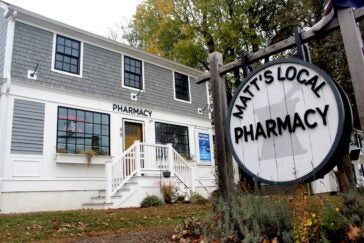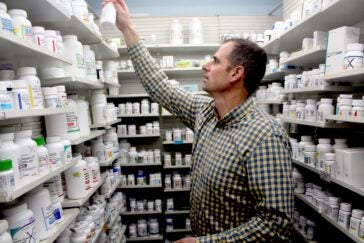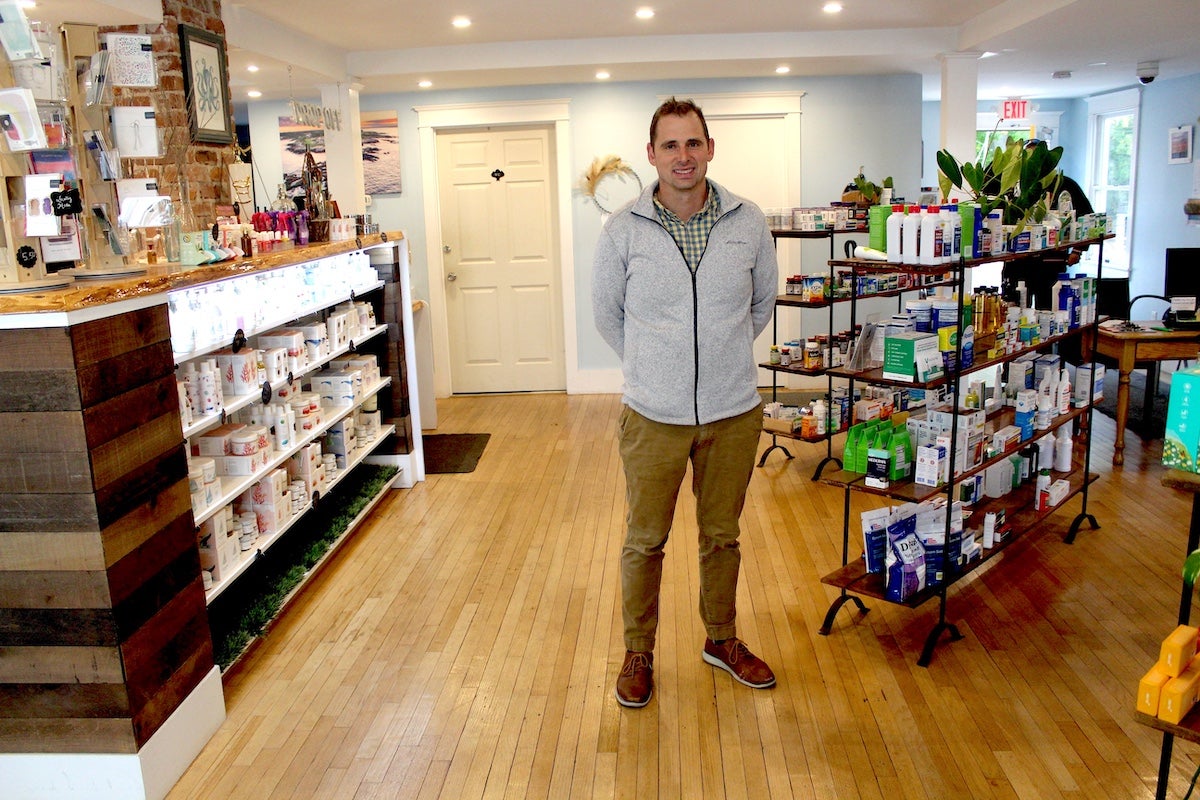Despite financial challenges in drug reimbursement, URI alum seeks to expand services of Matt’s Local Pharmacy
Pharmacists are known as the most accessible of health care providers, willing to meet with patients without an appointment to discuss health conditions, medications and their side effects, or possible alternative treatments to help keep fellow members of their community happy and healthy.
But ever-increasing costs—especially as third-party middlemen known as pharmacy benefit managers, or PBMs, maintain a stranglehold over pricing structures and insurance reimbursement—has made it difficult for small pharmacies to run a business, leading to a corporatization of the industry and domination by big chain retailers.
Despite the financial challenges, a handful of independent pharmacies in Rhode Island are determined to keep the “community” in community pharmacies. Matt Olivier, a 2006 graduate of the URI College of Pharmacy who began his career with the big chains, loved working with patients, but hated the limits corporate red tape placed on the services he and his fellow pharmacists could provide. So he put together a business plan, sold his house, worked to secure additional financing, and in 2018, opened Matt’s Local Pharmacy on East Main Road in Middletown.
“I think one of the main things when you come in my pharmacy, you feel the difference. It’s got a community vibe, a welcoming staff you can come in and talk to,” Olivier said. “Community pharmacy has always been an amazing part of the community, and the big chains used to be that way as well. We are providing what I envision pharmacy should be. We are providing a service as it’s supposed to be.”
Olivier and his staff—which often includes URI interns he precepts—make it a point to be available to consult patients, address their concerns, and generally create the conditions they need to lead healthy lives. “We can provide such a premium service compared to our competitors. People come to us because they want to talk about their medications; they want to be healthy. That’s amazing and that’s why I’m doing it,” Olivier said.

Matt’s Local Pharmacy is planning to further expand those premium services. Olivier envisions a more service-based pharmacy, a one-stop shop where patients can receive more medical-based services like counseling on chronic disease states, health screenings and testing, in addition to vaccination and medication services pharmacies already provide.
“We could see you, find out what the problem is, and you could leave here with a medication without having to go see your doctor or a walk-in,” Olivier said, noting the severe shortage of primary care practitioners in the state. “We could fill in a lot of gaps, but those services won’t grow if we can’t be paid for it.”
That requires legislative support in Rhode Island, which is one of 18 states that does not officially recognize pharmacists as health care providers, prohibiting them from billing for those services, Olivier said. The biggest problem, however, remains the level of reimbursement pharmacies get from insurance companies, which is managed by PBMs. Olivier said they frequently fail to pay what it costs pharmacies to acquire a drug, forcing them all to take a loss to fill prescriptions they can’t refuse.
“You’re seeing a lot of independents closing out, because we can’t dispense medication without losing money. We can’t get medications for what they’re willing to reimburse,” Olivier said. “We actually have more business than we can handle, and we group up with other independents so we have huge buying power, and we’re all stuck in this position. They’re really pretty much forcing you out of business.”

Industry groups have been lobbying the state General Assembly to allow pharmacists to serve as health care providers and to rein in the PBMs that drive up costs. In the meantime, Olivier continues to seek alternate sources of revenue, renting space to a chiropractor in an adjacent building where he hopes to one day also offer pharmacist-based health services; planning to build a compounding lab; and offering therapies like hormone and veterinary compounds that don’t involve insurance companies. His efforts have resulted in a business that is growing every year, despite the challenges in profit.
“We run a lean machine; I’m doing everything I can to make this thing run as well as possible for the least expense,” Olivier said. “I can really see things growing in the right direction. There’s a huge opportunity here for outreach to our community. That’s what gets me excited, to start offering things that no one else is. It’s been amazing the amount of impact we can have on the community.”

